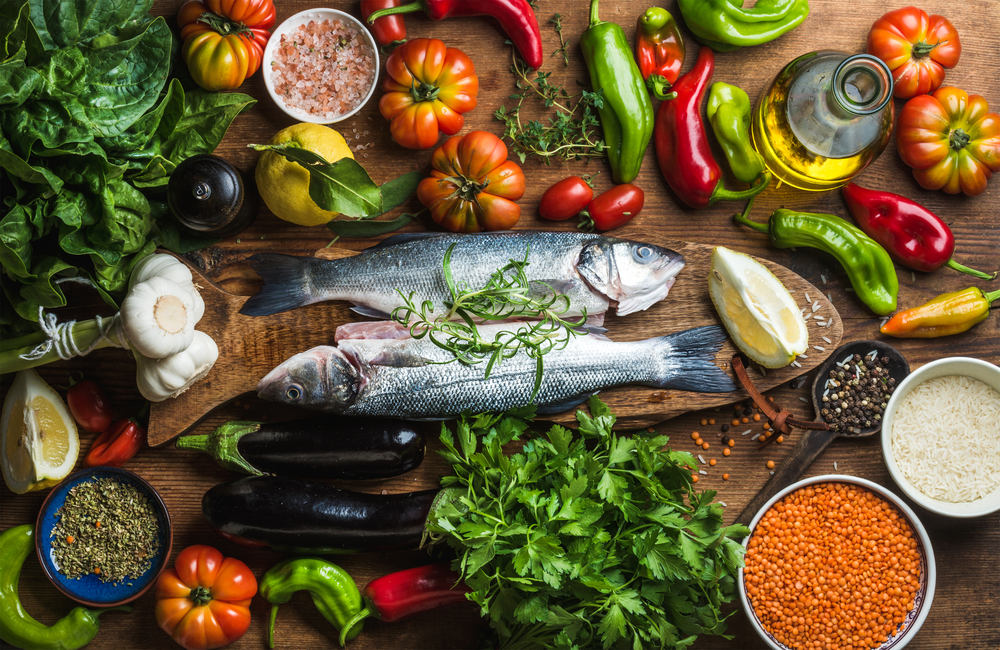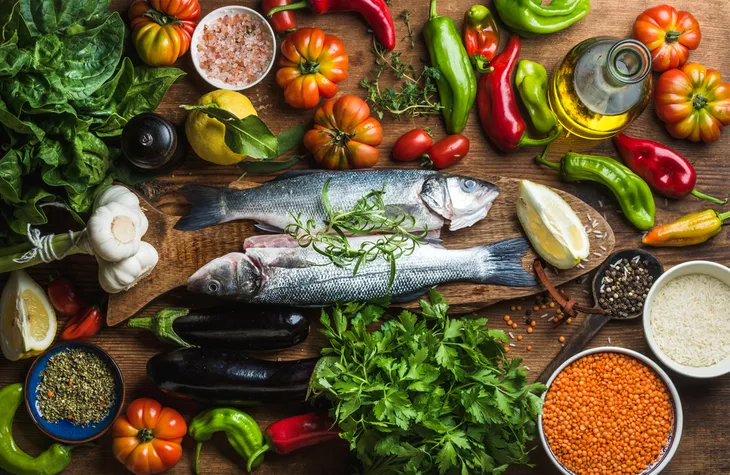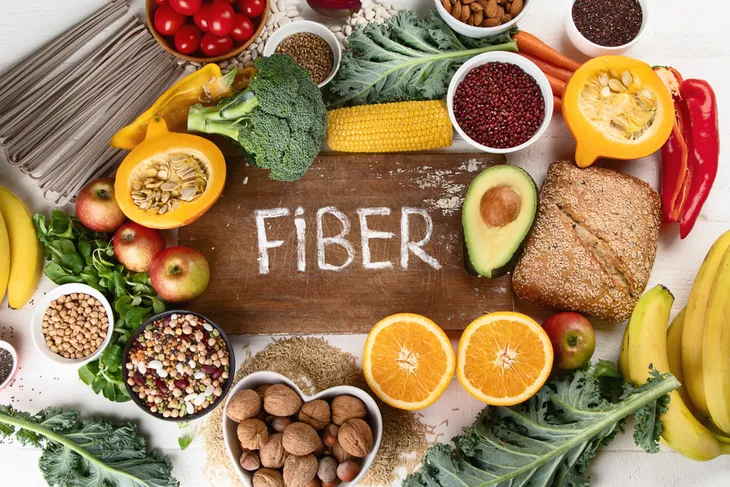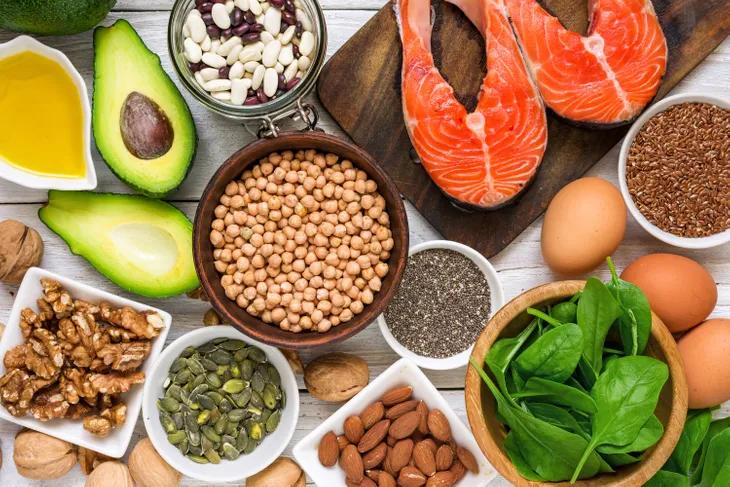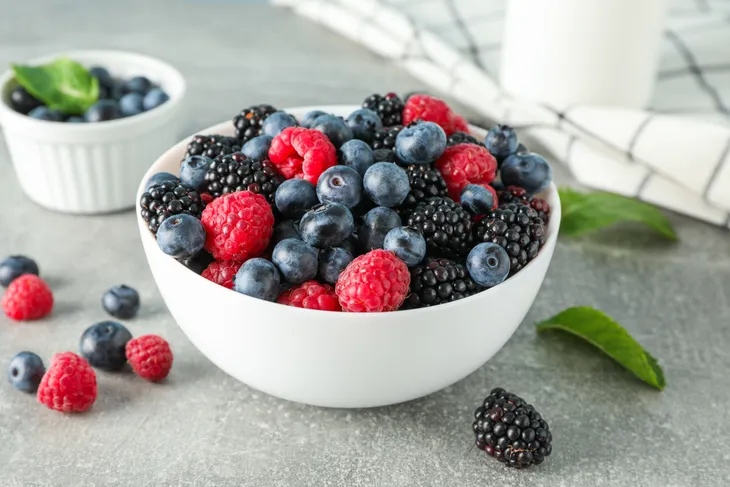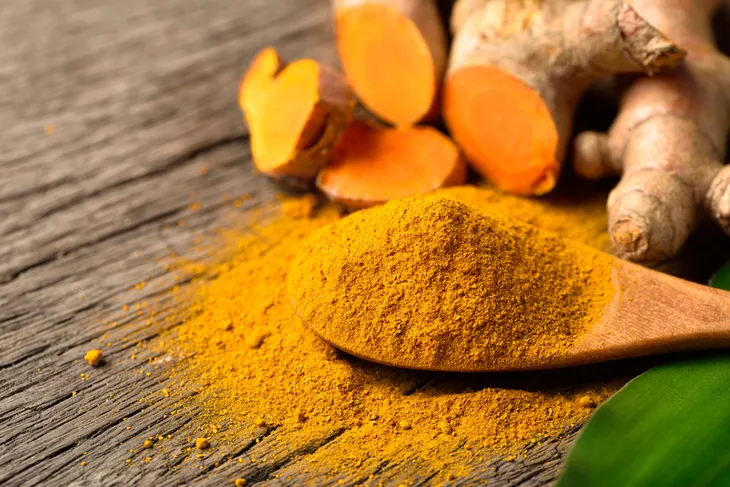- Rheumatoid arthritis is an inflammatory disease that causes inflammation and painful swelling in the joints.
- While there is no cure, there are effective treatment options and lifestyle changes that can help you manage the disease.
- A few popular diets have shown promising benefits for the disease.
Rheumatoid arthritis is an autoimmune and inflammatory disease that causes inflammation and painful swelling. It mostly affects the joints and often, many joints at once. While there is no cure for rheumatoid arthritis, there are effective treatment options and lifestyle changes that reduce the risk of joint damage and help you manage the disease.
One important lifestyle change is what you eat but keep in mind, your diet should not replace the treatment recommended by your doctor. Instead, healthy dietary changes may be suggested in combination with your treatment plan.
There isn’t a rheumatoid arthritis-specific diet per se but there are some already existing diets that show promising benefits for the disease. Here’s a quick look at special diets that may help rheumatoid arthritis. We’ll also take a look at additional nutrients you should consider and which foods you should avoid.
What to Look for When Choosing a Diet
According to the Arthritis Foundation, the best diet for arthritis is one that helps fight inflammation. So while there is no magic rheumatoid arthritis diet, there are things you can look for when choosing a diet.
A diet that’s rich in whole foods, such as vegetables, fruits, nuts, and beans is a good place to start. The source also says it’s important to avoid processed foods, and saturated fat as much as possible as they’re not good for your overall health and may make the disease worse. Let’s take a look at a few diets you can consider to help manage your symptoms.
Benefits of the Mediterranean Diet
The Mediterranean diet is a popular eating plan and for good reason. The Arthritis Foundation points out that studies found the Mediterranean diet offers tons of health benefits from lowering blood pressure to protecting against health conditions like cancer and stroke. Research also says it can help rheumatoid arthritis by reducing inflammation.
Additionally, the Mediterranean diet may also lead to weight loss which can reduce pressure on your joints and in turn, reduce joint pain caused by RA. The source also notes that in addition to benefiting your joints, it may also benefit your heart health.
Foods to Eat on The Mediterranean Diet
This diet plan was created to mimic how many people eat in countries along the Mediterranean Sea. The Cleveland Clinic says the diet consists mostly of plant-based foods like a range of fruits and vegetables, nuts and seeds, whole grains, and extra virgin olive oil. Lean sources of protein like poultry, fish, seafood, dairy, and eggs are also to be eaten in moderation. Here’s a list of some foods to eat while following the Mediterranean Diet:
- Blueberries
- Cherries
- Spinach
- Kale
- Broccoli
- Walnuts
- Almonds
- Extra virgin olive oil
- Red kidney beans
- Pinto beans
- Oatmeal
- Brown rice
- Quinoa
- Salmon
- Tuna
- Sardines
A Gluten-Free Diet
A gluten-free diet diet may not be for everyone but Everyday Health says that individuals who have rheumatoid arthritis, as well as gluten sensitivity or celiac disease, may notice less joint pain when following it. A gluten-free diet simply excludes all foods that contain gluten.
This diet can feel limiting at times, but some great substitutes include quinoa, rice, and millet. The source also points out that if you don’t have gluten sensitivity or celiac disease then it might not be worth following this diet. Always talk to your doctor to find out if a diet is right for you.
Other Nutrients to Consider That May Help RA
The bottom line is to try and follow an eating plan that encourages a reduction in inflammation in the body. While the diets we listed above may help manage and reduce your symptoms, you can also build your own eating plan that aims to reduce inflammation. The key is to focus on healthy foods and nutrients that can have that effect on your body. Let’s take a look at some nutrients (and examples of these nutrients) you should consider to help manage your symptoms.
Fiber
It’s no secret that fiber is good for you but despite knowing its importance, many Americans don’t get enough of it daily. Fiber may benefit rheumatoid arthritis in three ways. For starters, the Arthritis Foundation states that some studies have found a link between high-fiber diets and lower C-reactive protein (CRP) levels in their blood. This is important because “CRP is a marker of inflammation” that is linked to RA and other diseases like heart disease and diabetes.
Secondly, a high fiber diet may aid in weight loss which can also play a role in reducing inflammation. Finally, the source says fiber may benefit the bacteria in your gut which can also help play a role in inflammation reduction. A few examples of fiber-rich foods include:
- Beans
- Apples
- Spinach
- Broccoli
- Raspberries
- Quinoa
- Flaxseeds
Omega-3 Fatty Acids
According to the Arthritis Society of Canada, omega-3 fatty acids may also benefit rheumatoid arthritis by reducing inflammation in the body. The source explains that several studies have found that omega-3 fatty acids from food or supplements may reduce inflammation, disease activity, and RA symptoms like swollen and painful joints.
Omega-3 fatty acids are essential fats you need but they’re not naturally produced by the body. This means they must be included in your diet. Luckily, there are many options!
Omega-3 fatty acids can be found in fish like salmon, sardines, and mackerel. It’s also found in plant oils, including flaxseed and canola oil and it’s found in nuts and seeds, such as flaxseed, chia seeds, and walnuts. If you can’t obtain enough omega-3 fatty acids through diet, supplementation is an option but you should always consult your doctor first.
Flavonoids
Flavonoids are plant compounds that have antioxidant properties. According to Healthline, flavonoids can reduce inflammation in the body, which in turn, may help reduce the symptoms associated with rheumatoid arthritis.
Luckily adding more flavonoids to your diet is easy as they’re naturally found in many fruits and vegetables. Some examples include berries, grapes, soy, broccoli, green tea, and even dark chocolate.
Antioxidants
Antioxidants help fight free radicals in your body, which can cause harm if their levels become too high. While the body has its own antioxidant defense system, antioxidants can also be found in many foods. But how can they benefit RA?
One study found that antioxidants may improve disease activity and they may help control oxidative stress in RA. Additionally, antioxidants may also play a role in reducing inflammation. Many fruits, vegetables, and nuts contain antioxidants. Healthline also suggests looking for foods that contain vitamins A, C, E, or selenium.
Spices That May Benefit RA
Spices are a great way to add loads of delicious flavor to your meals but it turns out some spices may benefit rheumatoid arthritis. According to Healthline, one spice that should be on your radar is turmeric. The source explains that it contains “a compound called curcumin that has anti-inflammatory properties.” Ginger may also have the same effect.
Keep in mind that curcumin isn’t effective without adding piperine, which is found in black pepper. So be sure to also add a pinch of black pepper when adding turmeric. Another spice that may benefit RA is chili peppers which contain a compound called capsaicin. This compound is also known to reduce inflammation.
Foods to Avoid With RA
The worst foods for rheumatoid arthritis sufferers are foods that cause inflammation in the body. Healthline says these foods are known as pro-inflammatory foods and they contain a variety of problem-causing ingredients. Inflammatory foods you should avoid with RA include processed carbs, such as white flour and white sugar, as well as saturated and trans fats. These are often found in fried and processed foods.
The source says other foods to avoid include red and processed meats, eggs, and dairy. While avoiding these types of foods indefinitely can be a challenge, try to at least reduce your consumption and swap them out for anti-inflammatory foods instead.
